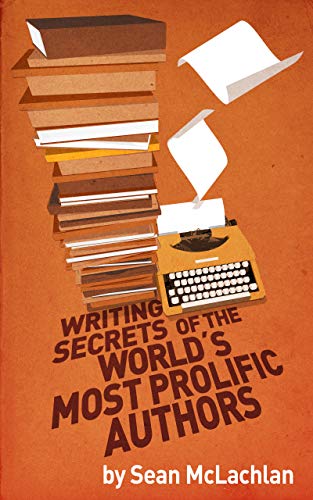Ebooks have radically transformed the publishing world—by taking it back in time.
After World War II, as the economy boomed and wartime restrictions on paper ended, publishers discovered a hungry market for inexpensive books. The mass market paperback was born. They were available everywhere—not just in bookstores but on spinner racks in drugstores, supermarkets, even laundromats. Books of all genres and subgenres satisfied seemingly endless varieties of taste.
Ebooks have produced a similar phenomenon with countless titles, specialized genres, and easy availability. They’ve also replicated one of the mainstays of the paperback boom—the ghostwriter.
Most people think of ghostwriters as the writing talent behind the “autobiography” of some famous athlete or musician. People generally expect these to be ghostwritten. Few know that many novels are also written by ghostwriters. They either use a pen name given to them by the publisher, or a group of ghostwriters operates under a house name, each coming up with individual books for that name.

Carolyn Keene, author of the Nancy Drew series, is a household name. Same with Franklin W. Dixon of the Hardy Boys. Neither writer existed. Both series were written by various authors of the Stratemeyer Syndicate. Tabor Evans, of the successful Longarm series of Westerns that ran more than 400 titles, was the house name for at least 11 different authors.
If readers knew this, they didn’t care. They knew the name on the cover gave a certain reading experience. That’s what mattered.
It still does. The ebook boom has created a growing market for ghostwriters. Clients include midlist publishers, individuals who are good at marketing but need a writer, and production teams in which each member handles a different part of the publishing process. It’s a lucrative field. I’ve made a comfortable living at it for some years now, as do many of my colleagues.
It’s virtually impossible to get into ghostwriting without having already published fiction. The novels I indie publish under my own name serve as a CV for my ghostwriting work. We’re usually asked to sign a nondisclosure agreement, barring us from using ghostwritten novels in our CV or samples. Thus it’s essential for the aspiring ghostwriter to first get published either traditionally or independently.
Entry points into ghostwriting include professional organizations, ghostwriting companies, and freelance websites. I got started through Upwork, where dozens of ghostwriting jobs are posted every day. While the majority were in erotica and romance, genres I don’t write, there were enough thriller, fantasy, and mystery jobs to get me started. Since then my reputation has expanded. Now I use the freelance sites less and generally sign contracts directly with the client. As with any other type of writing job, knowledge of contracts and copyright is vital.

Like in the heyday of mass market paperbacks, the industry rewards ghostwriters who can produce a large volume of clean copy on time. One must also be able to change the tone, mood, and genre to fit the project. I’m currently writing a lighthearted cozy mystery and a gritty serial killer series. Both are under house names, for which I’m given instructions on style. Some clients provide the barest of outlines (sometimes only a paragraph) while others give outlines running several pages.
Pay varies widely. I got started at three cents a word, quickly went up to five, and now demand ten cents a word. That adds up when you average 20,000 words a week. Many professionals manage more than that.
Ghostwriting is the best way I know to make a living writing fiction. It works for me, and if you’re hardworking and can stick to a good daily word count, it can work for you.
BIO: Sean McLachlan has written more than 50 novels, the majority under house names. He’s also authored several nonfiction books, including Writing Secrets of the World’s Most Prolific Authors.
Leave a Reply